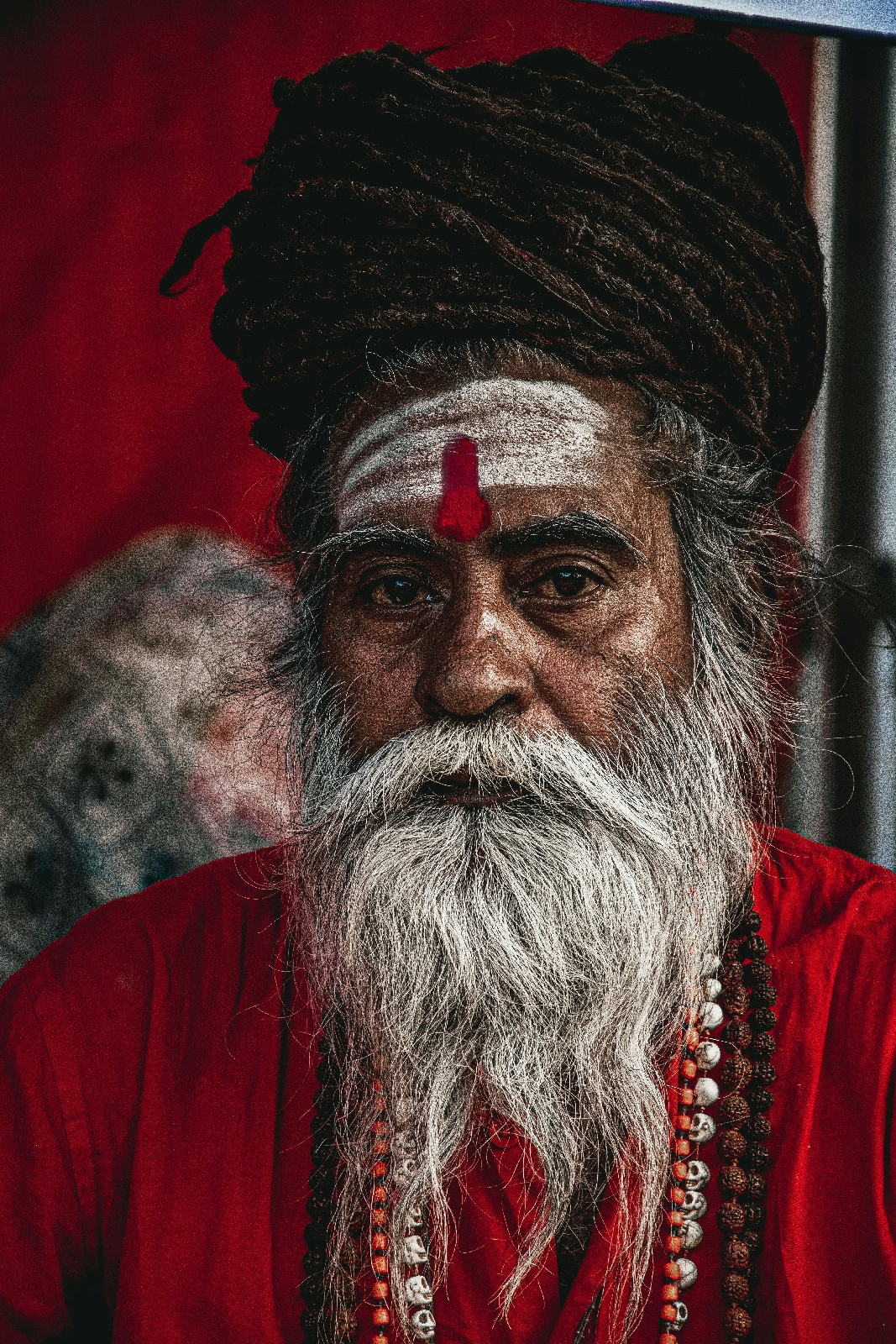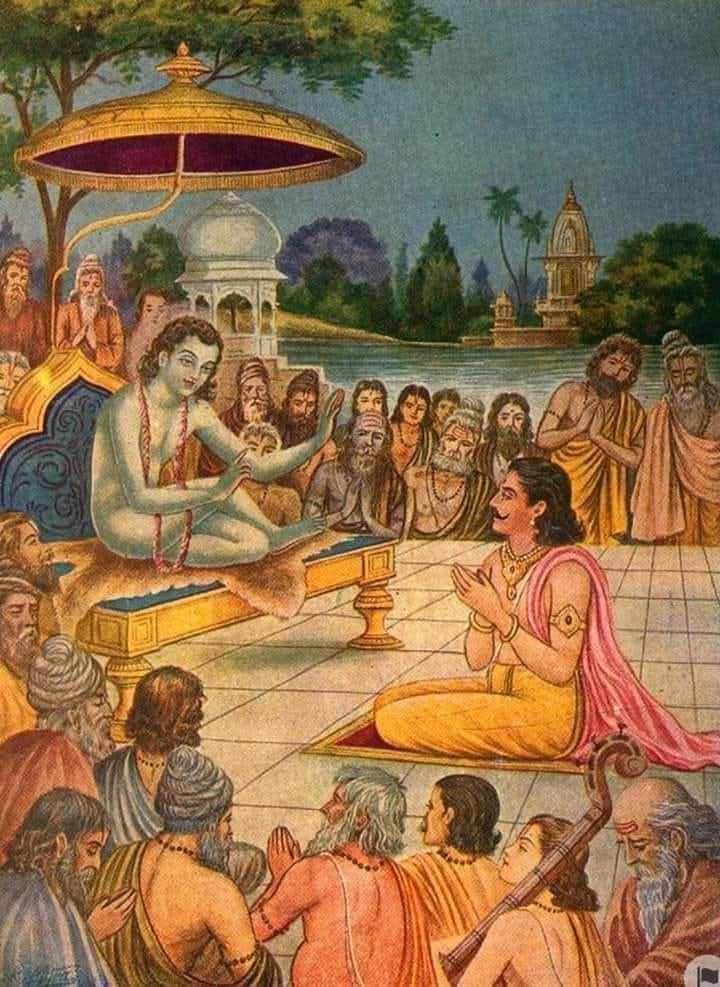● • (भाग-४) ● •
● गुरु पूर्णिमा का दिन सनातन धर्म में अत्यंत पावन एवं शक्तिशालीदिन माना गया है। इस दिन समस्त श्रद्धावान साधक गुरु महाराज के चरणों में श्रद्धा,विश्वास, भक्ति और समर्पण के साथ नारियल ("श्रीफल" ) अर्पित करते हैं, जिसे आशीर्वाद स्वरूप लौटा दिया जाता है। अभिमंत्रित नारियल गुरु की दिव्य चेतना, उनके आशीर्वचनों एवं ब्रह्मांडीय ऊर्जा का संचायक बन जाता है।
नारिकेलस्तु मधुरः शीतलश्च बलप्रदः।
शुक्रवृद्धिकरः स्निग्धः स्त्रियाः गर्भधारणे हितः॥
● आयुर्वेद में चंद्रमा को मन और रसधातु का कारक माना गया है और यह जल तत्व को नियंत्रित करता है। पूर्णिमा के प्रभाव से,गुरु पूर्णिमा के दिन चंद्र-ऊर्जा चरम पर होती है और यह स्त्रियों के स्वाधिष्ठान चक्र (प्रजनन केंद्र) को जाग्रत कर गहरा प्रभाव डालती है। जब उनके द्वारा अभिमंत्रित नारियल का बीज और जल पूर्ण श्रद्धा, विश्वास और गुरु-भक्ति के साथ ग्रहण किया जाता है तो यह बीज मात्र शारीरिक गर्भधारण का माध्यम नहीं बनता वरन नवजीवन की संभावना, स्त्रीत्व की पूर्णता, और मां बनने के सौभाग्य का उद्घोष बन जाता है।
● शास्त्रों में उल्लेख है —
||बीजं ब्रह्मा, जलं विष्णुः, फलरूपं शिवः स्मृत||
||पूजितं तद्गुरोः हस्ते, सर्वकामफलप्रदम्||
• नारियल का बीज ब्रह्मा का प्रतीक है (सृष्टिकर्ता),
• नारियल का जल विष्णु का प्रतीक है (पालनकर्ता),
• फल स्वयं शिव का प्रतीक है (रूपांतरणकर्ता)।
• अतः गुरु महाराज द्वारा अभिमंत्रित नारियल सर्व मनोकामनाओं की पूर्ति का कारक बन जाता है।
||गर्भे सुप्तं बीजमिदं, गुरोः कृपया जागृतं भवेत्||
||जलशक्त्या संयुतं चेत्, वन्ध्यायाः सौभाग्यदा भवेत्||
`
अर्थात:
जो बीज गर्भ में सुप्त है, वह गुरु की कृपा से जागृत हो जाता है। यदि वह जलशक्ति से युक्त हो, तो "वन्ध्या" स्त्री को भी सौभाग्य (संतान) प्रदान कर सकता है।
● अंततः गुरु की कृपा से पूजित श्रीफल ना केवल शरीर, वरन मन और आत्मा को भी स्पर्श/पोषित करता है। यह आयुर्वेद और अध्यात्म का समन्वय बन जाता है जो स्त्री के जीवन में मातृत्व का दीप जला सकता है।
||जिसे छू ले वक़्त-ए-दुआ में नज़र-ए-पीर की रौशनी||
||वो बीज भी कोख में बन जाए रहमत की बूँद कोई ||
● अर्थात
• जब किसी बीज को दुआ के क्षणों में पीर (गुरु) की दृष्टि का प्रकाश छू जाए, तो वह बीज भी कोख में जाकर रहमत की बूँद बन सकता है — "संतान का वरदान"।
@@@@@@@@@@@@@@@@@@@@@@@
Guru Purnima — A Sacred Confluence of Ayurveda, Spiritual Energy, and the Blessing of Motherhood
● Guru Purnima is considered an immensely sacred and powerful day in the Sanatan Dharma. On this auspicious occasion, devoted seekers offer coconut ("Shreephal") at the lotus feet of their Guru with reverence, faith, devotion, and complete surrender. This sacred coconut, after being ritually blessed and returned as prasad, becomes a carrier of the Guru’s divine consciousness, sacred benediction, and cosmic energy.
> “Nārikelastu madhuraḥ śītalaśca balapradaḥ।
Śukravṛddhikaraḥ snigdhaḥ striyāḥ garbhadhāraṇe hitaḥ॥”
● According to Ayurveda, the coconut is sweet, cooling, strength-giving, nourishing, and known to increase reproductive vitality, particularly beneficial in supporting conception in women.
● Ayurveda regards the moon as the controller of the mind and rasa dhatu (the nutritive fluid of the body), as well as the regulator of the water element. On Guru Purnima, the moon is in its full phase, and this lunar energy reaches its peak. It activates the Swadhisthana Chakra (the reproductive center) in women, exerting a deeply transformative effect.
● When the consecrated seed and water of the coconut, blessed by the Guru, are consumed with deep faith, devotion, and surrender, they do not merely aid physical conception, but become a medium of new life, a manifestation of complete womanhood, and a proclamation of the blessing of motherhood.
● The scriptures affirm:
> "Bījaṁ Brahmā, jalaṁ Viṣṇuḥ, phalarūpaṁ Śivaḥ smṛtaḥ।
Pūjitaṁ tadguroḥ haste, sarvakāmaphalapradam॥"
• The seed within the coconut symbolizes Brahma, the Creator.
• The water represents Vishnu, the Preserver.
• The fruit itself symbolizes Shiva, the Transformer.
● Thus, a coconut consecrated by the Guru becomes a source of fulfillment of all desires (sarva-kāma-phala-pradam).
● Ultimately, the Shreephal, when sanctified by the Guru’s grace, touches not only the body, but also nourishes the mind and soul. It becomes a confluence of Ayurveda and spirituality, capable of igniting the divine flame of motherhood in a woman's life.
• "That which is touched by the radiant gaze of the Master at the moment of blessing,
Even a seed, planted in the womb, becomes a drop of divine mercy."
● Meaning:
• When a seed is touched by the light of the Guru’s gaze during the sacred moment of blessing, it can transform into a drop of divine grace in the womb — a miraculous gift of motherhood.
@@@@@@@@@@@@@@@@@@@@@@@
गुरुपूर्णिमा — आयुर्वेद, अध्यात्म एवं मातृत्ववर्षिण्याः कृपायाः पावनसंयोगः
● गुरुपूर्णिमादिवसः सनातनधर्मे परमपावनः शक्तिसंपन्नश्च दिनं स्मृतः। अस्मिन दिवसे सर्वे श्रद्धावन्तः साधकाः नारिकेलं — "श्रीफलं" — श्रद्धया, विश्वासेन, भक्त्या च समर्प्य गुरोः पादयोः अर्पयन्ति। तत् गुरुणा अभिमन्त्रितं श्रीफलं प्रसादरूपेण प्रत्यर्प्यते, यः तु गुरोः दिव्यचेतना, आशीर्वचनानि, च ब्रह्माण्डीयशक्तिः इत्यस्य धारकः भवति।
||नारिकेलस्तु मधुरः शीतलश्च बलप्रदः||
||शुक्रवृद्धिकरः स्निग्धः स्त्रियाः गर्भधारणे हितः||
● आयुर्वेदशास्त्रे नारिकेलं मधुरं, शीतलं, बलवर्धकम्, शुक्रधातुवर्धकं, स्त्रीणां गर्भधारणाय हितकरं च निगद्यते।
● चन्द्रः आयुर्वेदे मनसः च रसधातोः च कारकः इत्युक्तम्। अयं चन्द्रः जलतत्त्वस्य नियामकः अपि। पूर्णचन्द्रेण युक्ता गुरुपूर्णिमा चन्द्रशक्तेः पराकाष्ठां गच्छति। एषा चन्द्रचेतना स्वाधिष्ठानचक्रं (प्रजननकेन्द्रम्) जाग्रयति, विशेषतः स्त्रीणां शरीरे सूक्ष्मं प्रभावं करोति।
● यदा स्त्री श्रद्धया, भक्त्या च गुरुणा अभिमन्त्रितं नारिकेलबीजं जलं च सेवनं करोति, तदा तद् बीजं केवलं शारीरिकगर्भधारणस्य माध्यमं न, अपि तु नवजीवनस्य संकेतः, स्त्रीत्वपूर्णत्वस्य च लक्ष्यम्, तथा च मातृत्ववरस्य दिव्यघोषणां भवति।
● शास्त्रीयदृष्ट्या –
||बीजं ब्रह्मा, जलं विष्णुः, फलरूपं शिवः स्मृतम्||
||पूजितं तद्गुरोः हस्ते, सर्वकामफलप्रदम्||
• नारिकेलस्य बीजं ब्रह्मणः सृष्टिशक्तेः प्रतीकं।
• तस्य जलं विष्णोः पालनकर्तुः रूपं।
• फलम् स्वयं शिवस्य संहारस्वरूपं प्रतीकम्।
अतः गुरुणा पूजितं श्रीफलं सर्वकामनापूरणस्य कारणभूतं भवति।
● अन्ते –
• गुरुकृपया अभिषिक्तं श्रीफलं केवलं देहम् न, किन्तु मनसि आत्मनि च प्रभावं करोति। एषः नारिकेलः आयुर्वेदस्य च अध्यात्मदृष्टेः च संयोगरूपेण स्त्रियाः जीवनस्य मातृत्वदीपं प्रज्वालयितुं समर्थः भवति।
||या दृष्टिः पीरस्य दत्तवेला-दिव्यप्रभायुक्ता स्पृशेत्तदा बीजम्||
||तदेव कोष्ठे मातृरूपे परिणम्य, कृपाबिन्दुरिव जायते||
● अर्थ:
• यदा दानकाले गुरुना दीयमाना दिव्यदृष्टिः किञ्चन बीजम् अधस्पदं स्पृशति, तदा तत् बीजम् अपि कोख्याम् प्रविश्य कृपाबिन्दुरूपेण संतानवरदं भवति।
।┏╮/╱🌺
╰ 🌼 રવિ શર્મા 🌼
╱/ ╰┛🌺.

















